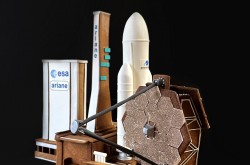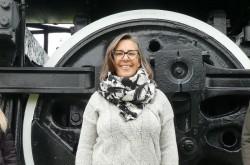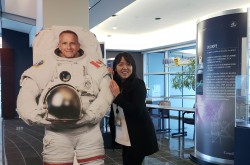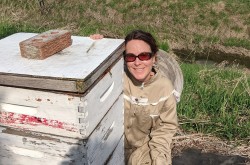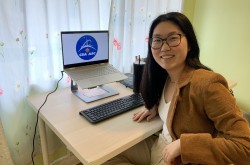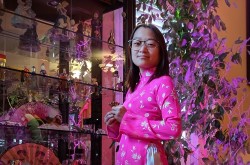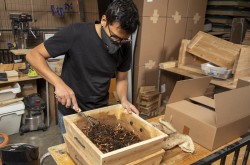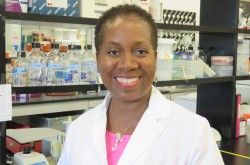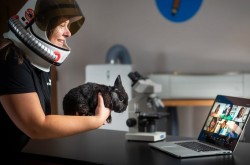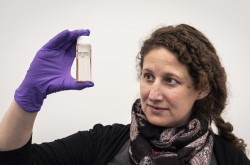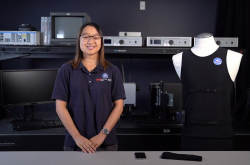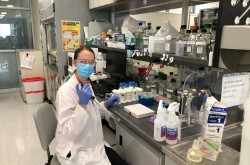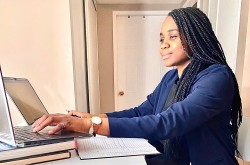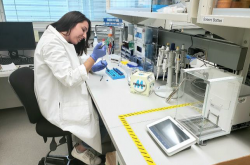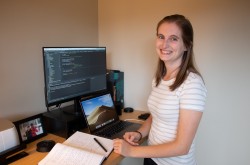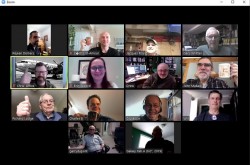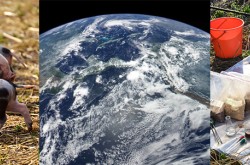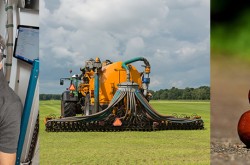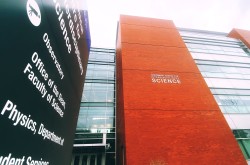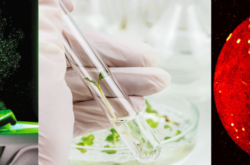Women in STEM: A conversation with Jasmine Shaw
Canadian astronaut and neurologist Roberta Bondar once said, “Exploration is not something you retire from. It is a part of one’s life ethic.” That sentiment of continuity — of striving to break new ground — is critical to uphold, even as we celebrate the past achievements of women who have gone before us during Women’s History Month.
Through its Women in STEM initiative, Ingenium is telling the stories of those who dared to think differently — in an effort to foster conversations around gender equity and promote careers for women in Science, Technology, Engineering, and Math (STEM). Similarly, the Dr. Roberta Bondar Career Development Program offers an opportunity for women working in STEM to network with industry leaders and peers, and get a behind-the-scenes look at the science and tech industries in Canada.
This month, the Ingenium Channel is highlighting a series of talented, Canadian women who are participating in the Dr. Roberta Bondar Career Development Program. In today’s profile we introduce you to Jasmine Shaw, an engineer who is developing the computer technology for the CH-148 Cyclone helicopter, on behalf of the Royal Canadian Air Force (RCAF).

Ingenium Channel (IC): Tell me how you’re using your expertise in your current role.
Jasmine Shaw (JS): I work at General Dynamics Mission Systems – Canada (GDMS-C) on the Maritime Helicopter Project. This project involves the delivery of 28 CH-148 Cyclone helicopters to the RCAF. GDMS-C is responsible for the Integrated Mission System, which includes a suite of onboard sensors and a centralized mission computer. In my role as release train engineer (RTE), I lead multiple engineering activities from test automation to process design to development tool configuration. My expertise is an intersection of key skills: design, planning, and facilitation. I combine these skills to tackle complex technical and organizational problems on a daily basis. Recently, I completed my Master of Applied Science degree in Technology Innovation Management from Carleton University, which provided me with new skills and knowledge in management research, business ecosystems, and entrepreneurship.
IC: Is there a person who inspired or encouraged you to choose your educational path and career?
JS: I don’t recall a specific moment when I decided to pursue engineering, rather it was a series of events over time — from Take-Your-Kid-to-Work Day, to university tours, to the application process. Looking back, one of the constants in those events would have been my parents. Both my mom and dad work in software engineering, and there was no shortage of encouragement from them to pursue a career in STEM.
IC: Is there anyone in Ingenium’s Women in STEM poster series that you find inspirational?
JS: All of them! To focus on one in particular, I am really inspired by Charity Wanjiku’s mission to alleviate energy poverty. It inspires me because it is such a massive undertaking — but we need people like that who are willing to take on these grand challenges. I also appreciate that she gives back to the next generation by acting as a role model for young girls.
IC: Describe one of the challenges or biases you had to overcome on your professional journey.
Something that I am continuing to understand and overcome is imposter syndrome. In other words, the nagging feeling that you aren’t actually any good at what you do and will be “outed” at any moment. It creates a dull, but constant, feeling of anxiety towards your ability to accomplish your work. An important part of my journey with imposter syndrome has been to learn to recognize it and call it out.
~ Jasmine Shaw
Some of the forms it takes for me is self-doubt, questioning, or even double/triple/quadruple checking an email before I send it. The next step is harder: not giving in to it. For me, this involves gentle reminders that yes, I am an expert in my field, and I do know what I am talking about. This is a phenomenon that I know a lot of my fellow women in STEM experience. I hope that having more open dialogue about it will help people who are trying to overcome — or simply navigate — imposter syndrome.
IC: Where do you hope to go from here?
JS: I hope to continue growing in my (fairly new) role as RTE, in order to support the engineering infrastructure of my program and my peers. In addition, I am leading a couple of initiatives at GDMS-C for the Diversity, Inclusion, and Belonging committee, which I plan to expand across the organization. Beyond that, I hope to combine my expertise on business ecosystem design, and my passion for advocating on behalf of women in STEM, to create meaningful impact in the tech workforce. This project is still in the planning phases, so I don’t want to reveal too much yet, but I have some big ideas.
IC: Do you have any words of advice for a young girl who wants to follow in your footsteps?
Your ideas matter. Don’t be discouraged from asking questions. Keep asking “why” until you are either satisfied with the answer or know what needs to be fixed.
Connect with Jasmine
If you want to reach out to discuss any of the topics mentioned in this profile, you can connect with Jasmine via social media:
Instagram: @jasmineashaw
Twitter: @jasmineashaw



